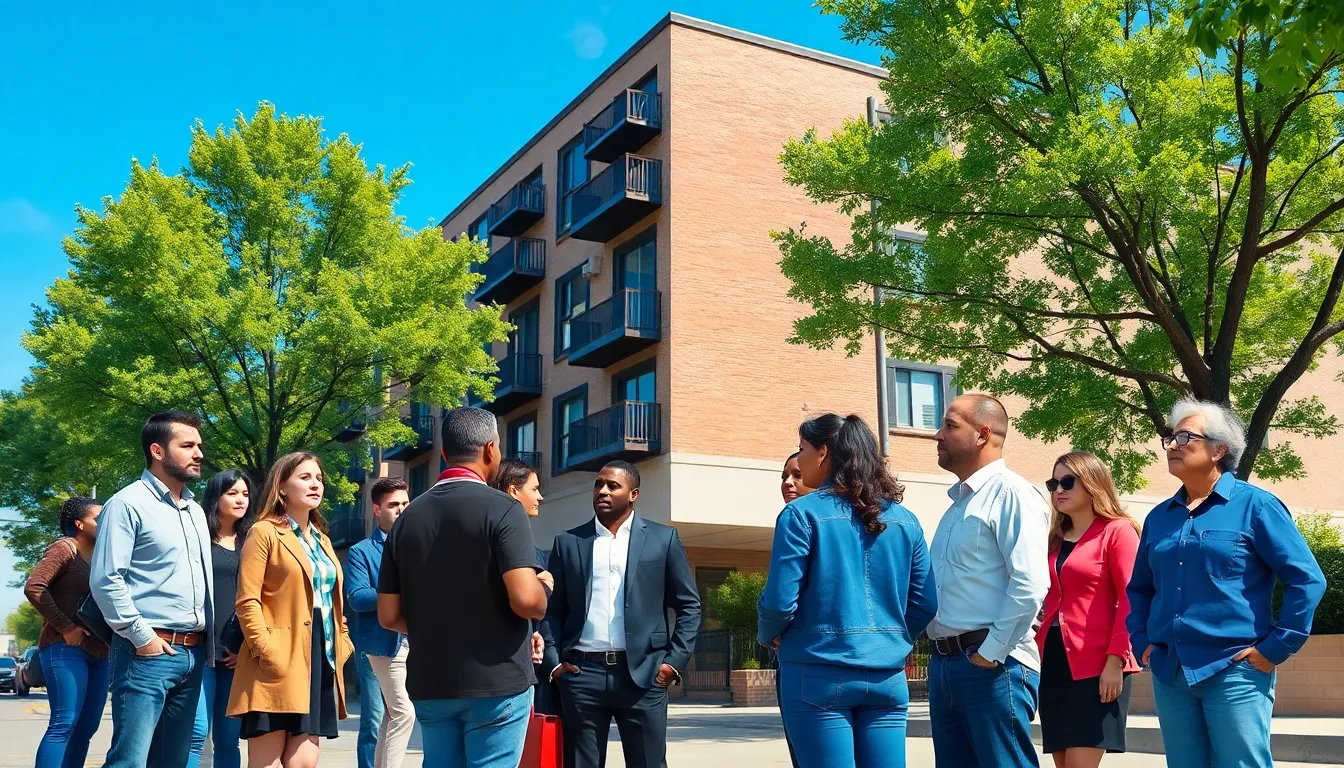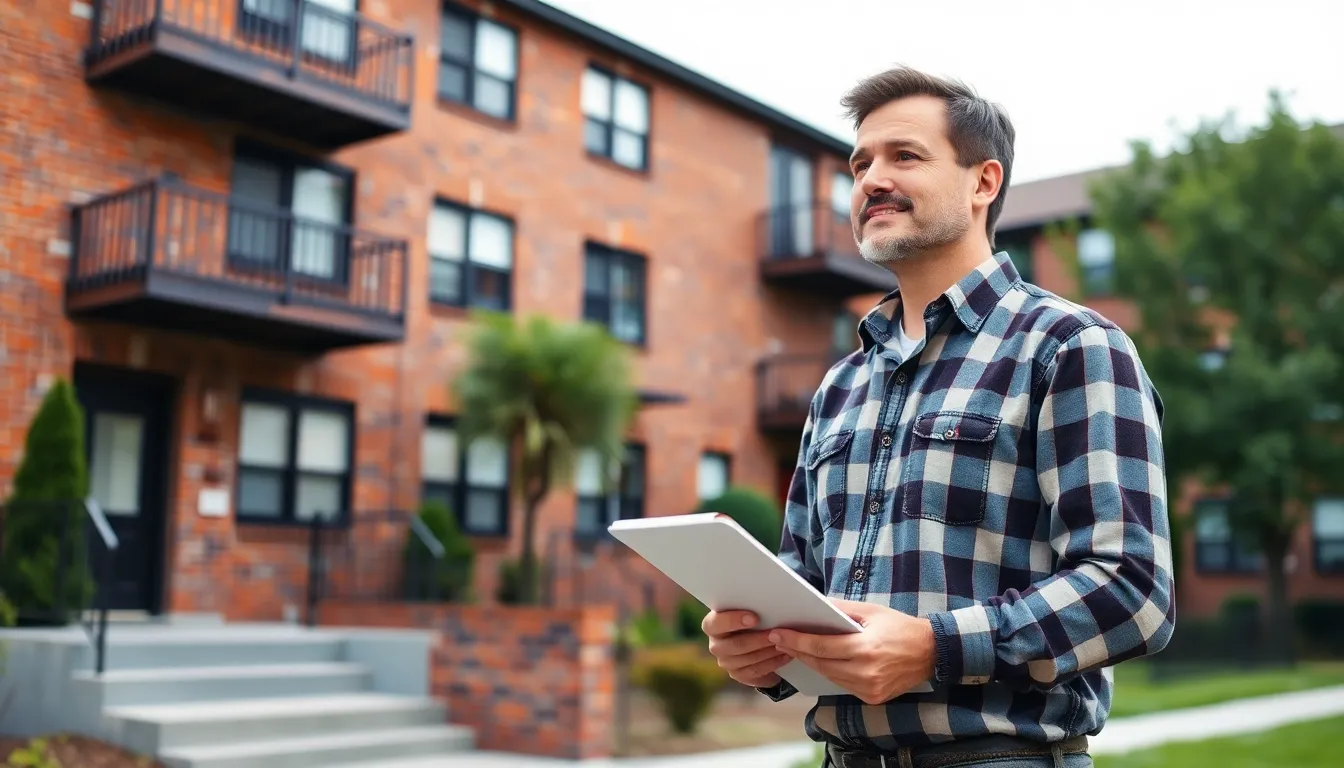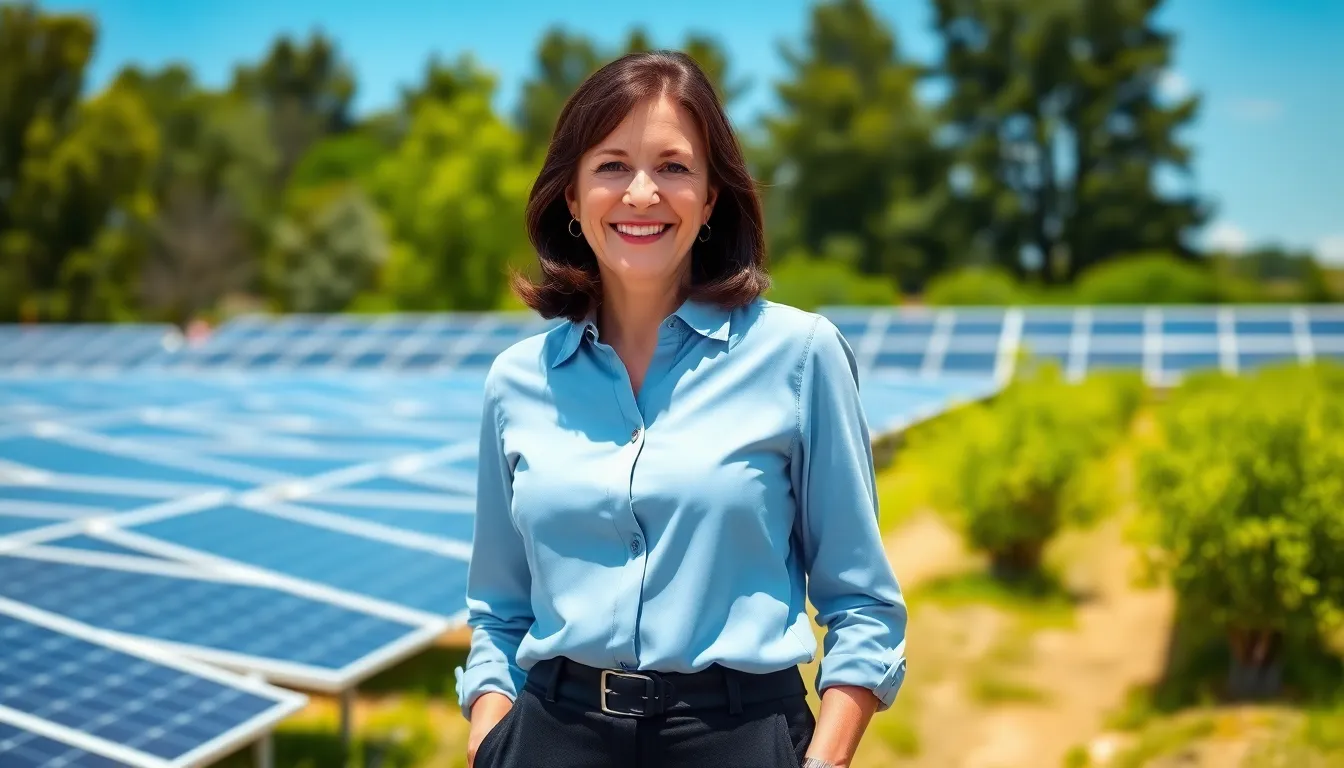Table of Contents
ToggleBeing a landlord isn’t just about collecting rent and saying, “Hey, don’t break my stuff!” It’s a full-time gig that comes with a laundry list of responsibilities. From ensuring the heating works during winter chills to fixing that leaky faucet that seems to drip only during movie night, landlords wear many hats—some of which are more stylish than others.
Understanding Landlord Responsibilities
Landlords manage various essential duties beyond rent collection. They oversee legal requirements and property upkeep, ensuring a safe living environment for tenants.
Legal Obligations
Landlords must adhere to local, state, and federal laws. These laws cover tenant rights, property standards, and fair housing regulations. Lease agreements need clarity to protect both parties. It’s crucial for landlords to conduct regular inspections and provide secure living conditions. Failure to comply can result in penalties or legal action. Understanding these obligations fosters strong landlord-tenant relationships.
Maintenance and Repairs
Timely maintenance prevents small issues from becoming major problems. Landlords should respond quickly to repair requests, addressing everything from plumbing to electrical issues. Routine inspections ensure that properties remain safe and habitable. Providing prompt service enhances tenant satisfaction and retention. Budgeting for ongoing maintenance helps manage costs effectively. Establishing a clear communication channel streamlines the repair process for all parties involved.
Tenant Rights and Landlord Responsibilities

Landlords must ensure tenants’ rights are respected while fulfilling their responsibilities effectively. Various aspects govern these rights and responsibilities, which contribute to a positive living environment.
Safety and Habitability
A landlord must provide a safe and habitable living space. This includes functioning plumbing, heating, and electrical systems. Compliance with local housing codes is non-negotiable. Tenants expect protection from hazardous conditions, such as mold or pests. Immediate action on safety concerns, like broken locks or fire hazards, is essential. Routine inspections can help identify and address potential issues before they worsen. Maintaining structural integrity, including roofs and floors, supports habitability.
Privacy Rights
Tenants possess the right to privacy in their rented homes. Landlords must provide appropriate notice before entering a tenant’s unit. Most jurisdictions require 24 hours’ notice, barring emergencies. Respect for tenants’ personal spaces fosters trust and cooperation. Understanding this right enhances landlord-tenant relationships. Tenants should feel secure in their rental units without the fear of unannounced visits. Clear communication about entry times and reasons keeps interactions positive and collaborative.
Common Challenges Faced by Landlords
Landlords encounter various challenges in their roles. Understanding these hurdles helps them manage properties effectively.
Managing Repairs
Promptly addressing repair issues proves essential in tenant satisfaction. Identifying maintenance concerns soon after they arise encourages timely action. For example, fixing a leaky faucet quickly prevents water damage. Landlords can establish relationships with reliable repair professionals to streamline the process. Regular property inspections help uncover potential problems before they escalate. Additionally, maintaining a scheduled maintenance routine keeps systems working efficiently. This approach minimizes unexpected costs and prolongs the lifespan of property features. Prioritizing repairs demonstrates a landlord’s commitment to tenant welfare.
Communication with Tenants
Clear communication significantly impacts landlord-tenant relationships. Ensuring open channels for tenant inquiries fosters trust and cooperation. Landlords can utilize various methods, such as texts, emails, or phone calls, to engage with tenants. Regular check-ins provide tenants with opportunities to express concerns. Addressing queries promptly reinforces a sense of partnership. Transparency about policies, maintenance timelines, and property rules enhances understanding. Establishing expectations early prevents misunderstandings later on. Trust builds when landlords show consistent communication efforts.
Best Practices for Landlords
Maintaining open communication enhances landlord-tenant relationships. Landlords should set clear expectations regarding maintenance requests and response times. Establishing a reliable system for tenants to report issues creates accountability.
Regular property inspections serve to identify potential problems before they escalate. Scheduling these inspections at least twice a year helps maintain property standards and tenant satisfaction.
Timeliness plays a crucial role in addressing repair requests. Responding promptly to issues shows tenants that their concerns are taken seriously. Inviting tenants to submit maintenance requests can streamline the process.
Ensuring safety and habitability is a top priority for landlords. They must regularly check important systems, such as plumbing, heating, and electrical systems, to meet local housing codes. Addressing any safety concerns, like broken locks or fire hazards, immediately fosters trust.
Providing proper notice before entering a tenant’s unit preserves privacy rights. Standard practice involves giving 24 hours’ notice unless it’s an emergency. Respecting this boundary encourages cooperation and communication.
Building relationships with reliable repair professionals creates a sense of readiness. Keeping a roster of trusted contractors helps landlords address urgent repairs without delay. This efficiency increases tenant satisfaction and reduces downtime.
Keeping accurate records of all communications and repairs is essential for legal compliance. Documenting interactions protects both landlords and tenants in case of disputes. Additionally, thorough record-keeping simplifies tax preparation and property management.
Ultimately, engaging with tenants through various communication methods—emails, texts, or in-person conversations—improves the overall rental experience. Maintaining transparency about policies, maintenance timelines, and updates strengthens landlord-tenant relationships.
Landlords play a crucial role in ensuring a positive rental experience for their tenants. By fulfilling their responsibilities effectively they not only maintain property standards but also build trust and cooperation. Timely maintenance and clear communication are vital in addressing tenant needs and enhancing satisfaction.
Respecting tenant rights and providing a safe living environment should be at the forefront of every landlord’s approach. Regular inspections and proactive management of repairs can prevent larger issues down the line. Ultimately a landlord’s commitment to their responsibilities lays the foundation for successful and harmonious landlord-tenant relationships.







